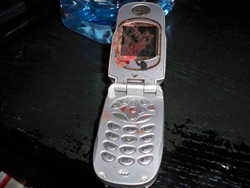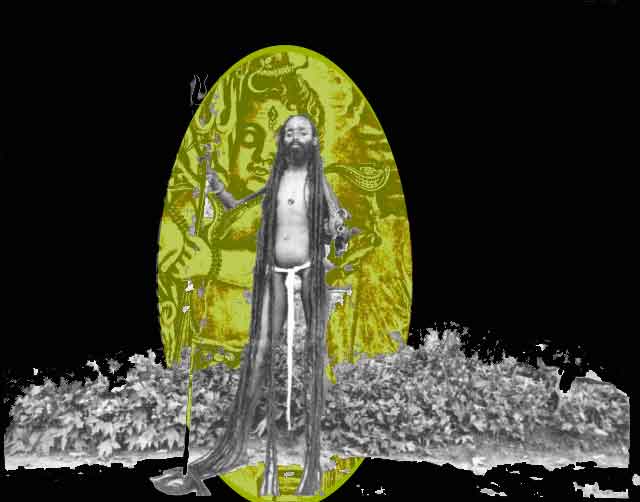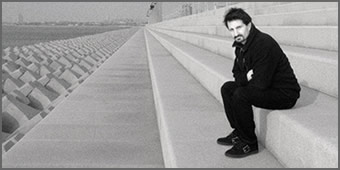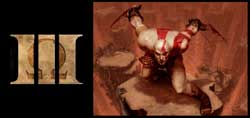Checkout my Tumblr page for more recent posts.
Blog Archive: Summer 08
April 3, 2013
It’s been one year since I moved into my Williamsburg apartment.
One year of mastering the subway. One year of fine tuning my commute. One year of missing San Francisco. One year of hustle. One year of four very distinct seasons -in California there are essentially two. One year and so much gratitude…
I am thankful that we live at a time when information and communication is dirt cheap. I’m thankful for my wonderful and prodigious sister, my mother and her spiritual vibration that reaches me when I’m far away, my dad and his mechanical genius and unconditional support, my cousin and virtual brother Amandeep Singh, my extraordinary grandmother and her epic story that I inherit as my heritage.
I’m thankful that I’m tall, strong, and healthy. I’m thankful for Williamsburg. I’m thankful that my apartment is right next to Pies and Thighs -love their hippy banjo sandwich and juicy fried chicken. I’m thankful for my career which demands that I’m creative everyday. I’m thankful for women, even the ones that float in and out of my life. They’re great. Oh how I adore them! I’m thankful for Apple and how they’ve managed to make work a little more enjoyable. I’m thankful for all the immensely talented stand up comedians in this city … Lee Camp, Big Jay Orkerson, Jessimae Peluso -bastions of urban wisdom. I’m thankful that I’m still here and not going anywhere anytime soon =D u
July 9, 2012
As if this song wasn’t filthy enough, I figured I try to push Khia into 9 Inch Nails “You Get Me Closer to God” territory. A wise man once said that as you venture further into one extreme it’s opposite can be found therein. I think this is the basis of Tantra? If I had to write a paper about this filthy piece of work I did, I would talk alot about Tantra, but really this song is inspired by an image of Khia hang gliding through the grand canyon singing My Neck My Back -that’s what this is all about.
December 18, 2010
I just found this video online that I made back in '05 when I was working as a tour guide for SETI. The production value is pretty weak, but I think there's some good science history documented here.
December 3, 2010
I put together this "behind the scenes" video for Morphonix featuring some of the recording studio work involved in making our brain games.
November 21, 2010
I finally got around to editing the Burning Man video I took with my old Kodak easy share camera. It's a little grainy and choppy, not unlike the experience itself. The music is a track I made earlier in 2010 called "Vision Dance".
January 5, 2010
Art.
February 16, 2009 Interview with Jeff Rona

While bouncing around LA, I got a chance to talk to film composer Jeff Rona at his studio in Santa Monica. Jeff was a student of photography, art and music in college. He quit school to pursue music as his life's work and has been enormously successful. Jeff's feature film work includes contributions to Traffic, idley Scott's Black Hawk Down (2001), The Mothman Prophecies (2002), Exit Wounds (2001), Mary Lambert's The In Crowd (2000), and numerous others. Jeff also was a leading figure in making Midi world wide phenomenon.
Jeff agreed to have an interview style discussion with me for my Blog. Here's what we talked about...
The music you composed for the 2008 Beijing Olympics, was performed by a live orchestra. Did you use music notation software like Sebalius or Logic's editor to write the score for the live orchestra?
No. It's important to hand over the job of music notation to someone who knows what they're doing, because it requires a bit of orchestration as well. Somebody has to clean up and polish the voicings. We had two orchestrators for the Olympics. I knew their work, they were both available, and I had absolute trust that they wouldn't ruin it too much!
Is there a large amount of interpretation left to the orchestrator?
I would never say to an orchestrator, "Just go with it." My Logic sequences are very detailed, very accurate. Sometimes there are polyphonic parts that need to be spread out in the voicings, but all-in-all it's a relatively mechanical process for an orchestrator to orchestrate what I do. When I write for live orchestra, I don't do anything strange. I don't over voice, which you can do when you’re doing electronic orchestra.
Two decades ago, composers wrote music with a pad and pencil. Today, most composers write by editing MIDI notes in a sequencer. Are their advantages and disadvantage to either approach?
I think it's better to use a sequencer. You can think faster. I learned with paper and pencil, but I can never imagine doing that now. I would forget what I was writing before I was half way through. I think the process of coming up with a melody isn't any different. I mean, if you're sitting with a paper and pencil you're probably at a piano playing.
The act of actually writing a theme is identical. So the basis of composing music is no different between paper and sequencer. But with a sequencer you can think more fluidly, because you can be recording all the time, and you don't have to think about converting it into notation. All you need to think about are the notes – your ideas. You can start with a piano sound for sketching, then do all the orchestration fairly quickly.
On the other hand, what you lose when you leave paper and pencil is that ability to think in terms of lots of different articulations and bowings and be a little looser, but now with good sample libraries even that's not that different.
Are there any go to sample libraries you use for symphonic music?
No. I've sampled my own orchestra twice.
So you had the orchestra play each note at different "velocities" or dynamic levels...
Something like that, If you've done sampling then you know the drill. Not fun.
A lot of composers today started their careers playing analog synthesizers in new wave bands. Hans Zimmer and Brian Eno come to mind. Given the variety of contexts one can be involved with music, as a composer, how important is it to be classically trained?
I think classical training probably allows you to be more versatile in your career but also maybe a bit less creative at times.
Why less creative?
Well, when you're classically trained to a certain degree, you may become judgmental about breaking the rules. I've met composers whose teachers sit on their shoulders and say "That's lazy writing." But there is good film music based on ‘lazy writing’ that doesn’t stay to the rules of voicing, harmony, rhythm, counterpoint, and what have you.
Right now you're working on the music for Sony's God of War III. How is composing for a video game different than composing for film?
Well, in a video game you don't have to worry about all those pesky moments in the story where things happen. In a way, video game scoring is a little bit more purely musical. You just write your music as a single idea or emotion. Film scoring is highly reactive. There's a story, editing, and dialogue you must stay away from. You have to write in between the words and the actions. You have to respect the edits, pacing, and characters down to the frame. In games there's nothing preset like that.
When you send your music off to a film or video game, do you rely on the music mixer to finalize the mix or do you feel like your music is pretty much done when it leaves your studio?
Well, nothing leaves here until it has been picked over by anybody with enough vocabulary to express an opinion. So by the time it leaves here the music has already gone through a maturation process. We don't serve it up until it's finally cooked! And it is mixed exactly as I want to hear it. It is delivered in a form that the mixers can make some internal changes if there is a problem with the music conflicting with dialog or transitions.
You quit college to pursue music as your life's work and you were successful. How did you come to make that decision?
Well, the lack of passing grades in school helped enormously in my decision! Some opportunities came up. I got a job with a music publishing company as a staff arranger. I did that for a year. Then I went back to school, somewhat half-heartedly. Then I had the opportunity to do software development at Roland, which led to the whole MIDI thing.
What's it like working with Midi on a daily basis knowing that you had a part in creating the technology?
I never really think about it. I'm too panicked about finishing my projects to be thinking about MIDI and technology history now.
January 20, 2009
My time at Ex'pression has come to an end. Class 65, thanks for all the memories.
January 15, 2009

Imagine Peace.
These were the words inscribed on my shirt when I was attacked by a dozen or so teenagers at the 12th Street Oakland City Center Bart Station on January 8, 2009. It had been over a week after the fatal shooting of an unarmed black man by Police at the Fruitvale BART station. Just the night before Josh, Joe, and I rode our bikes down 14th street and witnessed the tattered store facades, broken windshields, and burning trash cans that came as a result of the senseless shooting. Many self righteous thoughts came to mind as we rode our bikes through that pointless ruin.
But the next day, as I felt myself fall to the ground after enduring the first of many blows to my head, there was no thought in my mind. Getting beat up is like a car accident. In most car accidents, there's lots of swerving and skidding until finally the car smashes into something. During the skidding, time slows for the driver. Sometimes, the driver has no emotion, all of the mind's resources are directed towards that very moment, and the driver simply reacts.
The day after the incident was strange. I woke up early and decided to go to work despite looking like my face had been hit by a two by four. That evening, I drove three hours to be with my parents for the weekend. I did not sleep well. I hadn't slept well all week because of unpleasant dreams.
It's hard for me to remember my dreams, but I'll try to recall one of the nightmares that I had the night before the incident:
I'm sitting on a toilet in a white tiled bathroom. I'm staring at my bare feet and I notice that the big toe on my left foot is missing. Then I look in the white bathtub and see my severed big toe. Suddenly, I'm seeing myself from the third person. I look menacing sitting on the toilet with that bloody foot. Maybe it's not even me I'm looking at anymore. I feel the urge to get away from the nine toed man sitting on the toilet. I back away, and the nine-toed man gets up from the toilet seat and begins chasing me through the house. I run through a sliding window door and lock it. I'm trapped in the room and I can see the nine toed man through the door window. He's walking calmly towards me now. As he gets closer I can see that his body is more mutilated than before. He walks right up against the door and slowly raises his hand which is dripping with blood. All the fingers on his hand are severed except the middle finger. The nine toed man gestures his angry middle finger at me and smiles.
....
finally the car smashes into something...
John Saleda was my friend. He lived three blocks away from me with his best friend, Eric. Eric and John had code names for each other, they were Pit Viper and White Snake respectively. I met John two years ago at school. The first thing I knew about John was that he was severely funny. I knew early on that John was one of the funniest people I had ever met. I was lucky to get to learn more. I learned that John was an introvert masquerading as an extrovert. People adored John, but John kept his feelings secret. John's heroes were Charles Bukowski, Mark Twain, and F. Scott Fitzgerald. He told me that he was going to write the next great American novel. He would have. I can't make anybody believe this, but I swear to God he would have written it. John died in his apartment Friday night, probably while I was driving to see my parents. I still can't believe it, and there's really not much more I can say.
John's service will be held this Friday, January 16, at The Chapel of the Chimes:
4499 Piedmont Ave, Oakland, CA 94611 (510) 654-1288
A veiwing will be held from 4-8pm today at the Chapel of the Chimes.
Blog Archive: Summer 08


